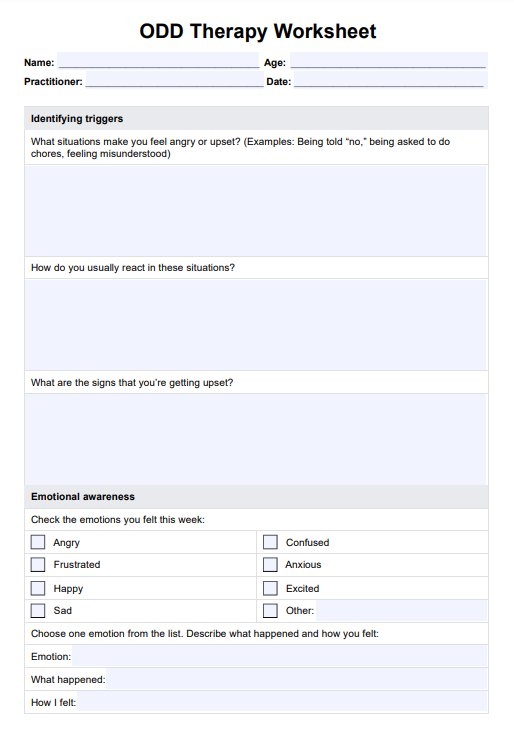The most effective therapy for oppositional defiant disorder (ODD) is typically behavioral therapy, particularly cognitive behavioral therapy (CBT). This approach helps children identify and manage their emotions, thoughts, and behaviors, focusing on positive behavior reinforcement and addressing oppositional tendencies.

ODD Therapy Worksheets
Download this ODD Therapy Worksheet for emotional regulation and communication skills, promoting positive behavior patterns and personal growth in individuals.
ODD Therapy Worksheets Template
Commonly asked questions
Disciplining a child with oppositional defiant disorder (ODD) requires clear, consistent, and structured boundaries. Using positive reinforcement for good behavior, setting logical consequences for misbehavior, and avoiding power struggles are essential strategies for managing defiant behavior.
Oppositional defiant disorder (ODD can improve as children grow, often with appropriate interventions and support. While some children may show improvement by adolescence, the severity and persistence of symptoms vary, and early intervention typically leads to better long-term outcomes.
EHR and practice management software
Get started for free
*No credit card required
Free
$0/usd
Unlimited clients
Telehealth
1GB of storage
Client portal text
Automated billing and online payments











